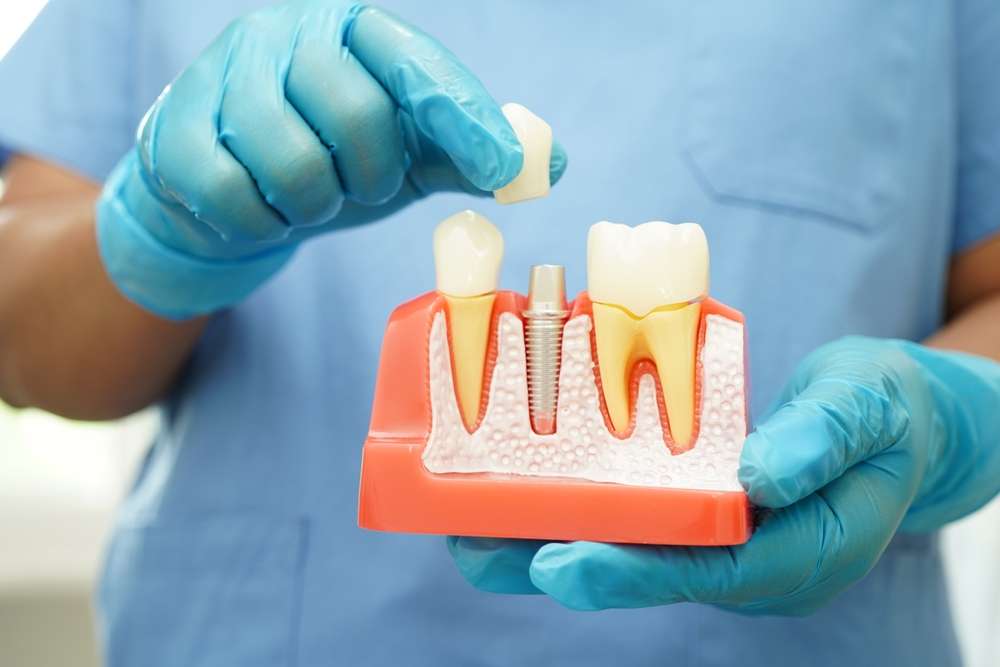Dental Implants Through Medicare: Complete Guide
In Australia, accessing dental implants via Medicare is possible under specific conditions. This complete guide outlines clinical requirements, the referral process, average out-of-pocket costs, and what steps to take if funding is denied. Understand your rights and options clearly.

Australia’s Medicare system has a complex relationship with dental care, particularly when it comes to extensive procedures like dental implants. While Medicare typically doesn’t cover most dental services, there are specific situations and alternative paths that might help offset the substantial costs of dental implants. This guide explores the complexities of Medicare coverage for dental implants in Australia, eligibility requirements, and options for those seeking this important dental restoration procedure.
Medicare Eligibility Requirements for Dental Implants
Australia’s Medicare generally does not cover dental implants as they’re considered cosmetic or routine dental procedures. However, certain exceptions exist that may provide partial coverage:
-
Public Dental Services: Some states offer public dental services through Medicare for eligible concession card holders, though waiting lists can be lengthy and implants are rarely covered except in exceptional circumstances.
-
Hospital-Related Dental Services: If dental implants are required as part of inpatient hospital care, Medicare might cover the hospital admission costs but typically not the dental implants themselves.
-
Cleft Lip and Cleft Palate Scheme: This Medicare initiative covers some dental treatments, potentially including implants, for eligible children with cleft lip or cleft palate conditions.
-
Department of Veterans’ Affairs (DVA): Eligible veterans may receive coverage for dental implants through DVA rather than Medicare directly.
It’s important to note that coverage is highly specific and requires thorough documentation of medical necessity rather than cosmetic or routine dental needs.
Starting the Process with Your GP Referral
If you believe your dental implant procedure might qualify for any form of Medicare coverage in Australia, the journey typically begins with your general practitioner:
-
Initial Consultation: Schedule an appointment with your GP to discuss your dental condition and whether there might be any pathway to Medicare assistance.
-
Medical Assessment: Your GP will evaluate whether your case might meet any of Australia’s public health criteria for dental assistance, such as specific chronic health conditions that are impacted by dental health.
-
Specialist Referrals: If your GP determines there might be grounds for coverage, they will refer you to appropriate specialists such as an oral surgeon, periodontist, or maxillofacial specialist.
-
Documentation Process: Your GP will help initiate the documentation process, providing medical history and evidence supporting any potential eligibility for assistance programs.
The referral from your GP serves as the foundation for exploring public health assistance options, even if full Medicare coverage for dental implants is unlikely.
Common Additional Costs Not Covered by Medicare
Patients should be prepared for significant out-of-pocket expenses when pursuing dental implants in Australia, as Medicare coverage is extremely limited:
-
Preliminary Procedures: Costs for initial consultations, X-rays, CT scans, and dental examinations are typically not covered.
-
Preparatory Treatments: Procedures like bone grafting, sinus lifts, or gum disease treatment that may be necessary before implant placement generally fall outside Medicare coverage.
-
Components: The implant itself (titanium post), abutment, and crown are rarely covered by Medicare.
-
Follow-up Care: Post-operative visits, adjustments, and maintenance are not covered under Medicare.
-
Anesthesia and Facility Fees: These costs are typically only covered if part of an eligible hospital admission.
| Component/Service | Typical Cost Range (AUD) | Potential Medicare Coverage |
|---|---|---|
| Initial Consultation | $80-$300 | Not covered |
| CT Scans/X-rays | $150-$600 | Not covered unless part of hospital treatment |
| Bone Grafting | $500-$3,000 per site | Not covered |
| Implant Post | $2,000-$3,500 | Not covered except in rare circumstances |
| Abutment and Crown | $2,000-$3,500 | Not covered |
| Total Per Single Implant | $4,000-$7,000+ | Limited to exceptional circumstances |
Prices, rates, or cost estimates mentioned in this article are based on the latest available information but may change over time. Independent research is advised before making financial decisions.
Documents Needed for Medicare Approval
In the rare instances where dental implants might receive some form of public funding in Australia, thorough documentation is essential:
-
Medicare Card: Your valid Medicare card demonstrating Australian healthcare eligibility.
-
Concession Cards: Healthcare Card, Pensioner Concession Card, or Commonwealth Seniors Health Card if applicable.
-
Detailed Medical History: Records showing how your dental condition relates to a covered medical condition or how it impacts your overall health.
-
Specialist Reports: Documentation from dental specialists explaining why implants are medically necessary rather than cosmetic.
-
Diagnostic Imaging: Recent X-rays, CT scans, or other imaging that clearly demonstrates the medical need for implants.
-
Treatment Plans: Comprehensive documentation of your treatment plan, including why alternatives to implants would not be sufficient.
-
Hospital Documentation: If your treatment involves a hospital stay, documentation explaining why this is necessary.
All documentation should emphasize any qualifying medical conditions that might make your case eligible for public health assistance, though standard dental implants remain largely uncovered by Medicare.
What to Do If Not Covered by Medicare
Since most Australians will not qualify for Medicare coverage for dental implants, several alternative options exist:
-
Private Health Insurance: Many Australian private health insurers offer dental coverage through extras policies, though coverage for major dental work like implants often comes with waiting periods and annual limits.
-
Public Dental Services: State-based public dental services may offer more affordable dental care for eligible concession card holders, though implants are rarely provided.
-
Payment Plans: Many dental practices offer payment plans that allow you to spread the cost of treatment over time.
-
Early Release of Superannuation: In cases of severe financial hardship or specific medical conditions, you may apply for early release of superannuation to cover dental implant costs.
-
Community Health Centres: Some community health centres offer dental services at reduced rates based on income.
-
Dental Schools: University dental schools may offer reduced-cost treatment performed by supervised students.
-
Child Dental Benefits Schedule (CDBS): For children aged 2-17, this program provides up to $1,000 over two calendar years for basic dental services, though it doesn’t cover implants.
Additionally, you might inquire about state-specific dental voucher programs or healthcare initiatives that occasionally provide funding for dental care.
Dental implants represent a significant investment in your oral health and quality of life. While Australia’s Medicare provides minimal coverage for dental implants, understanding the specific circumstances where assistance might apply can help you navigate the system more effectively. For most Australians, private health insurance and alternative payment options will be necessary to make dental implants financially accessible. Consulting with both healthcare providers and insurance specialists can help you develop the most cost-effective strategy for obtaining these important dental restorations.
This article is for informational purposes only and should not be considered medical advice. Please consult a qualified healthcare professional for personalized guidance and treatment.




